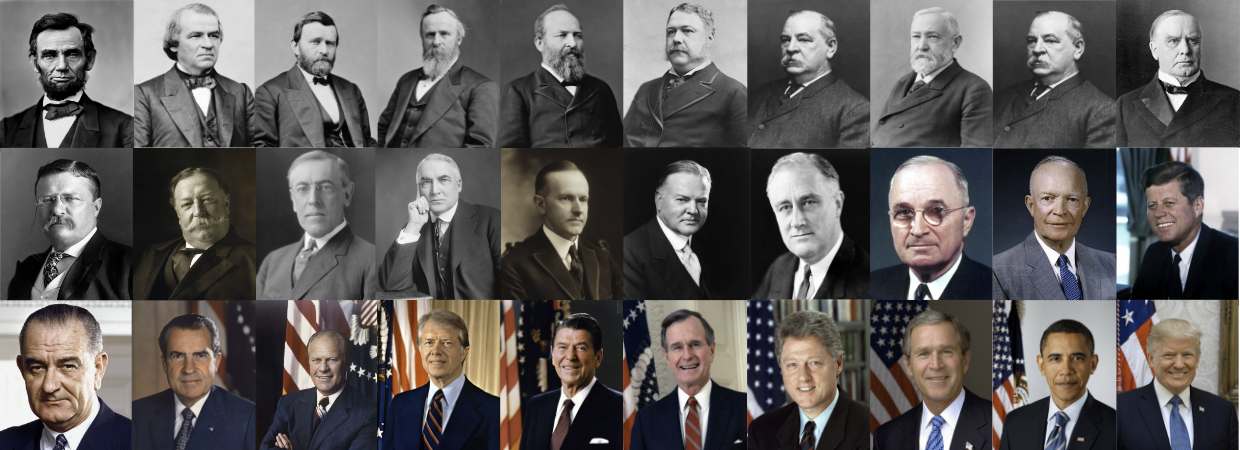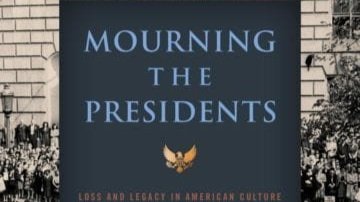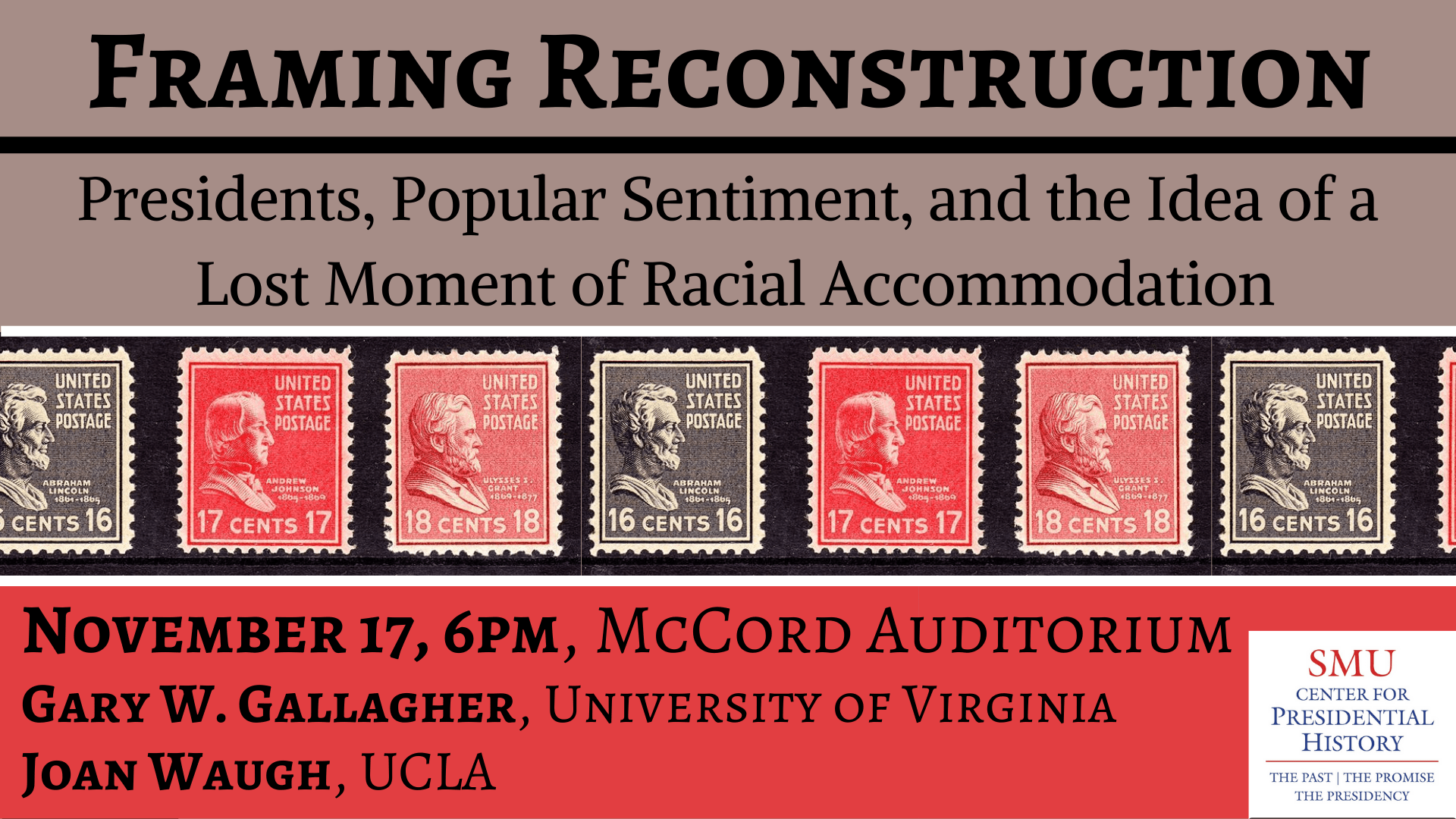
A podcast about the role of the presidency in American life.
Welcome to The Past, The Promise, The Presidency, Season Three: The Bully Pulpit. The president has a unique position in American society: a one-of-a-kind pulpit from which they speak. And presidents have consistently used their pulpit to address a wide range of issues - from foreign policy to healthcare. This season will explore how presidents have used the bully pulpit to influence American culture and policy, and how the congregation of Americans have responded.
The Past, The Promise, The Presidency, Season Two: Presidential Crises explored well-known presidential crises and those that are rarely talked about, from the Utah War to the government shutdowns of the 1990s. In the process, we considered: what makes a presidential crisis? What is the president’s role in solving the crisis? What happens when the president makes the crisis worse? How have presidential crises changed in the last 250 years? We explored all this and more in The Past, The Promise, The Presidency, Season Two: Presidential Crises.
The Past, The Promise, The Presidency, Season One: Race and the American Legacy explores one of the most pressing issues in all of American history—the country’s troubled and difficult history of race relations. This season focuses on the history of the nation’s most powerful office, the President of the United States, and its complex relationship with race. Race and the American Legacy tells the full story of our country’s past, and its promise, and what the future might hold. Americans in 2020 were determined to discuss both race and the presidency, so we figured we should at least get the history right!
The Past, The Promise, The Presidency is sponsored by the Center for Presidential History at Southern Methodist University.
Latest Episodes
With political gridlock in Washington DC at an all time high, government shutdowns–or the threat of them–have become a routine occurrence. National parks close. Federal paychecks stop going out. The National Institute of Health stops admitting new patients. How did we get to the point where it has become normal for the US Government to halt in its tracks? The history, in this case, is quite recent.
In the live finale of season 2 of our podcast The Past, the Promise, the Presidency: Presidential Crises we invited three special guests to discuss the first government shutdowns of the 1990s, the political showdowns between Newt Gingrich and Bill Clinton, and what the political environment of the 1990s can tell us about gridlock in Washington today.
Dr. Julian Zelizer, a Professor of History and Public Affairs at Princeton University, CNN Political Analyst, and author of Burning Down the House: Newt Gingrich, The Fall of a Speaker, and the Rise of the New Republican Party.
Dr. Leah Wright Rigueur, the SNF Agora Institute Associate Professor of History at Johns Hopkins University and the author of the award-winning study, The Loneliness of the Black Republican: Pragmatic Politics and the Pursuit of Power.
Dr. Sharron Wilkins Conrad, one of your favorite voices from season one, The Past, The Promise, The Presidency: Race and the American Legacy. Now, she is joining us from Tarrant County College, where she is an Associate Professor of History.
This week on The Past, The Promise, The Presidency, we are exploring a tragic national crisis that hits very close to home in 2021. The crisis of the HIV/AIDS epidemic.
Having lived through two years of a new coronavirus pandemic, we all intimately understand just how confusing and terrifying it can be for patients, doctors, and yes, presidents to confront a new and deadly disease. One of unknown origin, transmission, and incubation. Indeed, the only thing doctors could say with real confidence in the early 1980s about the Acquired Immune Deficiency Syndrome is that those who got it died.
We have gathered three guests to help us understand the Reagan Administration’s lethargic response during the early days of the AIDS epidemic. We also explore the key roles of patients, activists, and healthcare workers who pushed the US Government to do more to combat the AIDS epidemic.
First we spoke to Dr. David Oshinsky, Pulitzer Prize winner, and director of Division of Medical Humanities at NYU Grossman School of Medicine and a professor in the NYU Department of History.
We then spoke to Dr. John Graybill an infectious disease specialist who was quite literally on the front lines of the first battles against this new virus in the early 1980s.
And finally, we spoke to Dr. Jennifer Brier, Professor of History and Gender and Women's Studies at the University of Illinois, Chicago. An award-winning public historian and activist, she is the author, among other works, of Infectious Ideas: U.S. Political Responses to the AIDS Crisis.
Together they helped us understand a moment when public health ran headlong into presidential politics.
Maybe that sounds familiar. All right, let's get to it.
This week's crisis could have ended with the world in a giant blaze of nuclear flame, but it didn't. In fact, it's an example of how a crisis can be handled so effectively, that most people don't even remember it as a crisis. This week, we are talking about the fall of the Berlin Wall and the end of the Cold War.
It's November, 1989. Reagan famously delivered his "tear down this wall" speech in 1987, but West and East Berlin are as divided as ever. In the summer of 1989, Chinese military forces had mowed down peaceful protesters in Tiananmen Square. Horrified by the images of violence, American leaders, and George H.W. Bush in particular, were eager to avoid provoking a similar crackdown in Eastern Europe.
The stakes couldn't have been higher. Both sides were armed with enough nuclear weapons to destroy the world many times over, and they had itchy trigger fingers.
Then, unexpectedly, at a press conference, a mid-level bureaucrat ordered an enormous change in policy. He accidentally announced that residents would be allowed to leave East Germany. Word spread like wildfire. Within hours, thousands of residents were lined up at the gates to cross into West Berlin.
Why didn't this moment turn into one of violence and bloodshed? What were the repercussions of the collapse of a global superpower and its economic system? How might things have gone differently?
To answer these questions, we have two dynamite guests. First, we have a voice that you will probably recognize. Our podcast host, Jeffrey Engel. We then spoke to Dr. Mary Sarotte, who is the Kravis Professor of Historical Studies at Johns Hopkins University and a member of the Council on Foreign Relations.
After 28 episodes covering the presidents from Abraham Lincoln to Donald Trump, as well as two emergency response episodes, we’ve learned so, so much and we hope you have too. We decided to close out the season with a live season finale so that you, our fantastic listeners, could participate and shape the conversation. On Thursday, April 15, we gathered for this live event and recorded it to share here with you. Our sound is going to be a little different because it was a live event, but hopefully you will enjoy the unique format. Thank you all for participating in the season and the conversation, be sure to stay tuned to the end for a sneak peek of season 2!
Today’s episode is all about Donald John Trump, the 45th president of the United States. So, so much to say. And yet, Trump’s presidency is also so fresh, what could we say in an introduction that you’d not already know? The only president ever impeached twice by the House of Representatives; he was also the first in more than a century to voluntarily refuse to attend his successor’s inauguration. He was also one of only five presidents to have won the Electoral College vote without also winning the popular vote. Trump’s time in office was…unusual.
That was its point: to break away from the tired and worn in order to “make America great again.” The word “great” in that slogan naturally draws the eye. America must have been great before, and Trump’s policies sought a return. Great again. When precisely? And for whom? These were the central questions of his time in office, and also seem likely the central questions for historians still to come. As we’ve seen over the course of this inaugural podcast season, the promise of America was never fully available to all, and indeed, there were some moments in American history when the long arc of progress on issues of citizenship and racial equality seemed to take a step or two back, rather than forward.
Today’s episode is all about Barack Hussein Obama, the 44th president of the United States. Also, the first in more than two centuries who didn’t identify as white. Obama’s tenure remains fresh, yet hard to fully evaluate given the tumult that followed in his wake—and to some minds, the tumult that arose in direct response to his presidency. If we were taping this podcast a decade ago, in 2010 or 2011 during Obama’s first term, we might well have talked about his presidency as a culmination, a victory in the long march of progress towards a more equitable and free American society that has with every generation expanded the bounds of liberty and citizenship. Imagine what Thomas Jefferson, Andrew Jackson, Woodrow Wilson, or even Ronald Reagan would say to know that a black man had become president. The Whig interpretation of American history is right, we’d have said. Ours is a story of progress.
Well, it isn’t 2011. It’s 2021, and as we’ve been discussing all season, that feel-good narrative of struggle leading to inevitable progress doesn’t quite jive with America’s actual history. Or, its present.
Obama came to office in 2009, frankly, at an awful moment in American history. Wars in Iraq and Afghanistan dragged on, and the economy had tanked. It became known as the Great Recession, with foreclosures on housing and unemployment on the rise, and the roster of huge banks dwindle. Things didn’t feel as desperate as in 1933 when FDR took office. But the problems appeared so huge and arguably insolvable that it was worth asking, was it 1930? The satirical magazine, the Onion, perhaps captured the mood of his election, and its historic nature, with the following headline: “America gives worst job in country to black man.”









